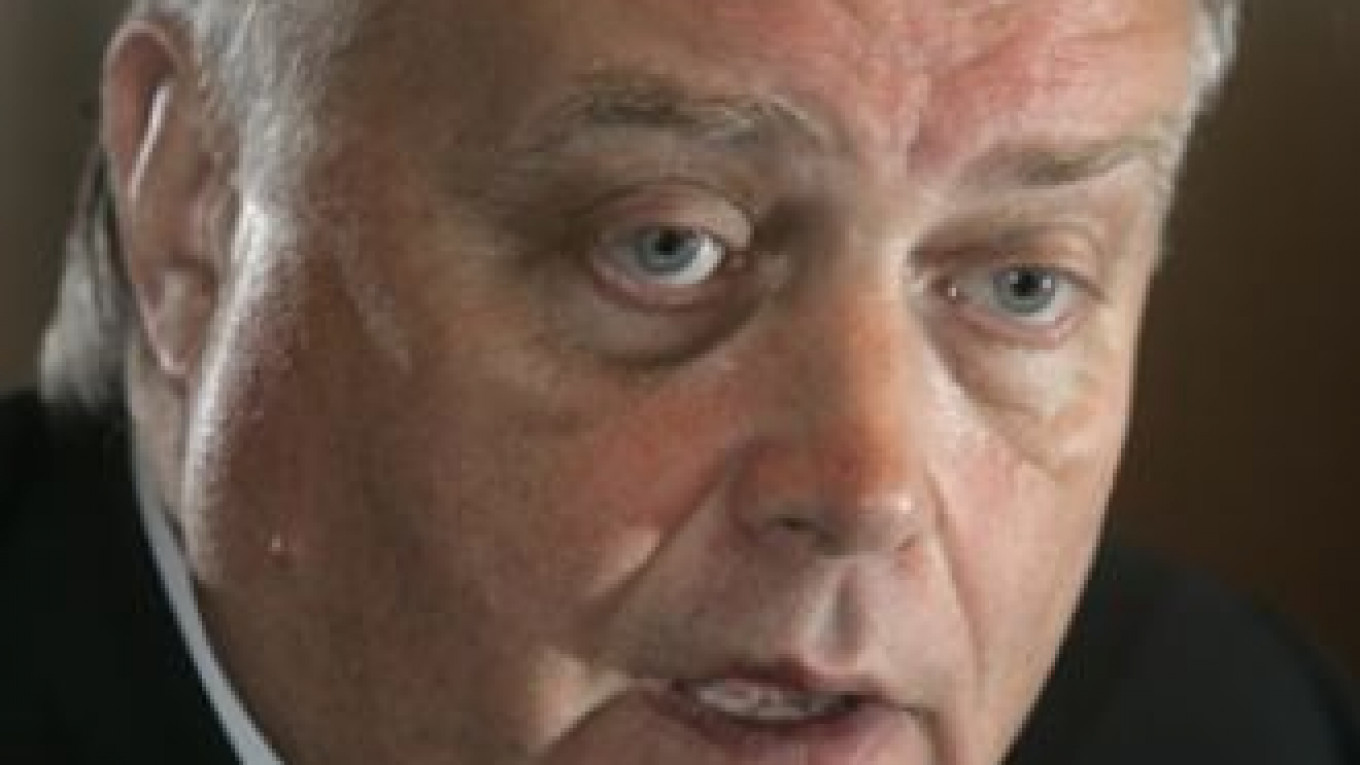Russian Railways chief Vladimir Yakunin understands why investors are wary of investing in the country: Local businessmen tell them too much about the risks.
Domestic companies are among the parties guilty of the fact that foreign investors don't like the investment climate in Russia, Yakunin said at the Strong Russia 2011 summit. "Russian business gives itself a bad reputation on its own when it reminds its partners regularly of the big risks for business development," Russian Railways quoted him as saying.
The statement was not impromptu. On June 10, Yakunin wrote on his blog that Russia's image is spoiled by its companies' international consultants. As an example, he cited Gazprom's bond issue, when "investment banks and underwriters officially notified potential investors of the low qualifications and corruption of Russian courts" in a footnote signed by the issuer that was included in the prospectus.
"Russian Railways likewise faced [this problem]," the company's head noted. When issuing eurobonds worth $1 billion in March 2010, the railway monopoly pointed out that authorities might be corrupt, courts not independent, judges incompetent and judicial decisions difficult to execute. "So it's common practice, and it must be fought," he wrote on his blog.
Companies themselves should reverse the psychology of Western investors regarding Russia, but in doing so they should remain transparent and understandable, "or else no one will talk to them," Yakunin wrote.
Russian Railways demonstrated how to do this by tweaking its prospectus for this year's £350 million eurobond issue in March. The item concerning "alleged corruption within the judiciary and government bodies" disappeared from the list of risks mentioned and the item on "crime and corruption" was half as long. In particular, a comment about kickbacks had disappeared.
Presidential aide Arkady Dvorkovich does not agree with Yakunin. "Recognition of problems and actions to correct them are better than silence," Dvorkovich said.
Poorly outlined risks can turn into lawsuits, even if the issuer did not default, but the stock dropped and the investor incurred losses, Hogan Lovells partner Michael Pugh warned. Everything should be listed, including the possibility of terrorism or blackouts, he said.
A detailed description of all risks — as related to the business of the company as well as to the country — is required by legislation in Europe and the United States. "The country in which you live and work influences business and its potential for development. An investor should receive all the information that pertains to his decision to invest money," Pugh continued. That's how issuers are insured against investors' potential claims, he explained.
Presidential adviser Alexander Pirkov insists that Yakunin was not saying that Russian Railways or other companies had anything to hide from investors. His point was that both the government and businesses need to work on improving the investment climate, but it should not be constantly emphasized that bad business conditions exist in Russia, Pirkov said.
The investment climate in Russia is not comparable to developed countries, but it meets the conditions for investment in large developing countries, noted Alexei Golubovich, chairman of the board of directors for Arbat Capital. Hiding risks from investors in memorandums does not make sense. Lawyers write them identically for companies from any country and regularly commenting on shortcomings stimulates officials to correct them, he said.
Many companies consider the risks of doing business in Russia acceptable. Siemens has been working in Russia for 160 years. The company assesses risks independently in its decision making, said Siemens Russia corporate communications director Alexei Grigoryev.
The situation is not ideal, but the government is making a great effort to improve it, he said. Siemens president Peter Loescher is a member of a consultative council of foreign investors that is preparing recommendations for the improvement of the investment climate, and many of them are being implemented in the law on foreign investment and other places.
A spokesman for Renault-Nissan said that, if the automotive giant had considered the investment climate in Russia bad, it would not have increased its stake in AvtoVAZ to controlling.
A Message from The Moscow Times:
Dear readers,
We are facing unprecedented challenges. Russia's Prosecutor General's Office has designated The Moscow Times as an "undesirable" organization, criminalizing our work and putting our staff at risk of prosecution. This follows our earlier unjust labeling as a "foreign agent."
These actions are direct attempts to silence independent journalism in Russia. The authorities claim our work "discredits the decisions of the Russian leadership." We see things differently: we strive to provide accurate, unbiased reporting on Russia.
We, the journalists of The Moscow Times, refuse to be silenced. But to continue our work, we need your help.
Your support, no matter how small, makes a world of difference. If you can, please support us monthly starting from just $2. It's quick to set up, and every contribution makes a significant impact.
By supporting The Moscow Times, you're defending open, independent journalism in the face of repression. Thank you for standing with us.
Remind me later.






